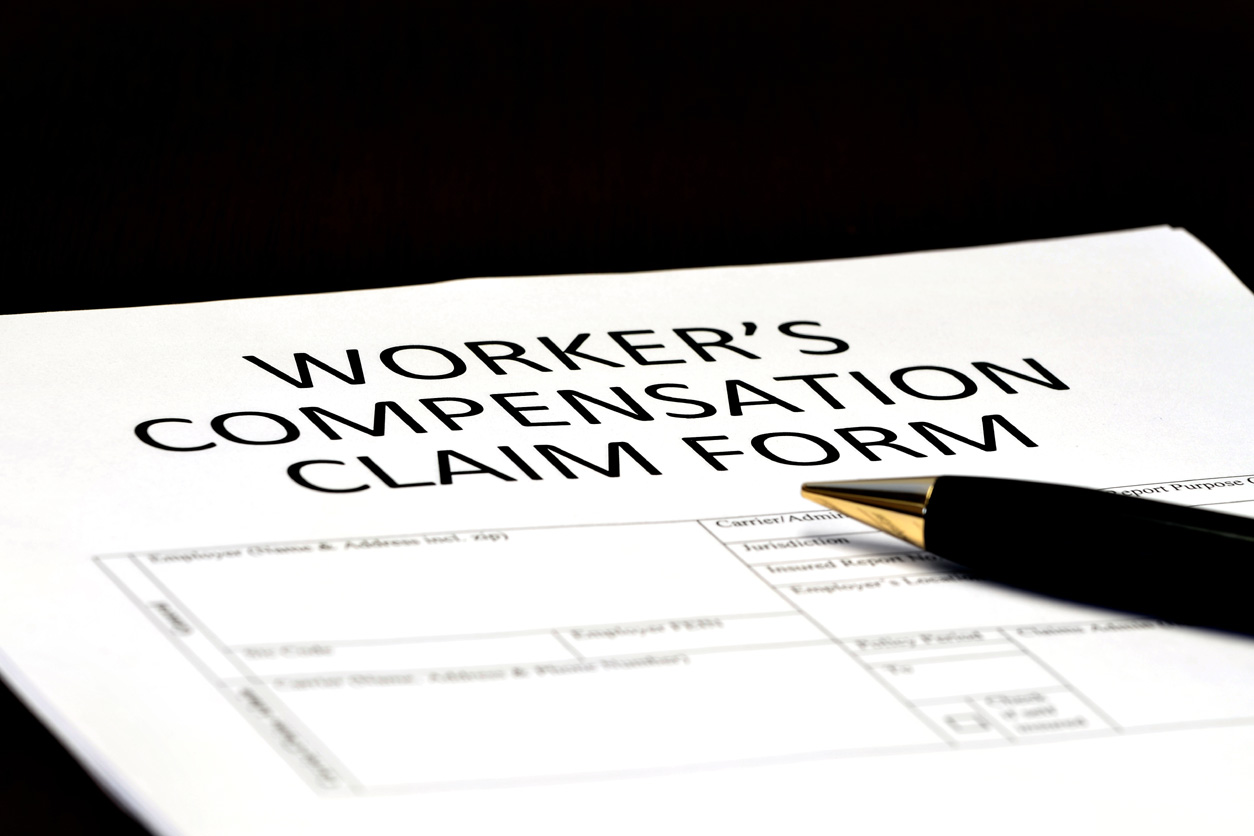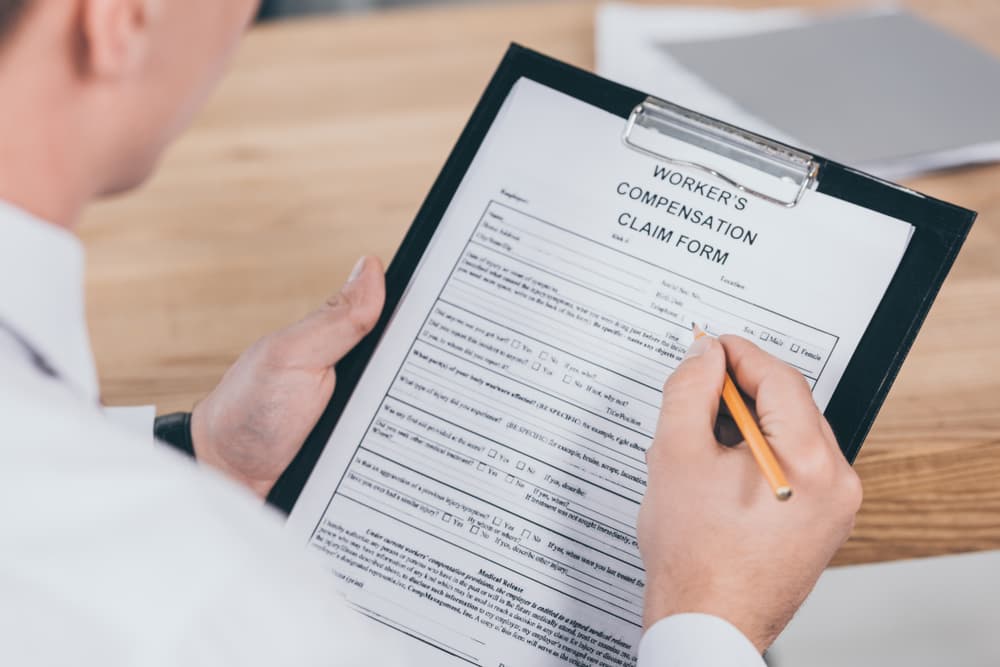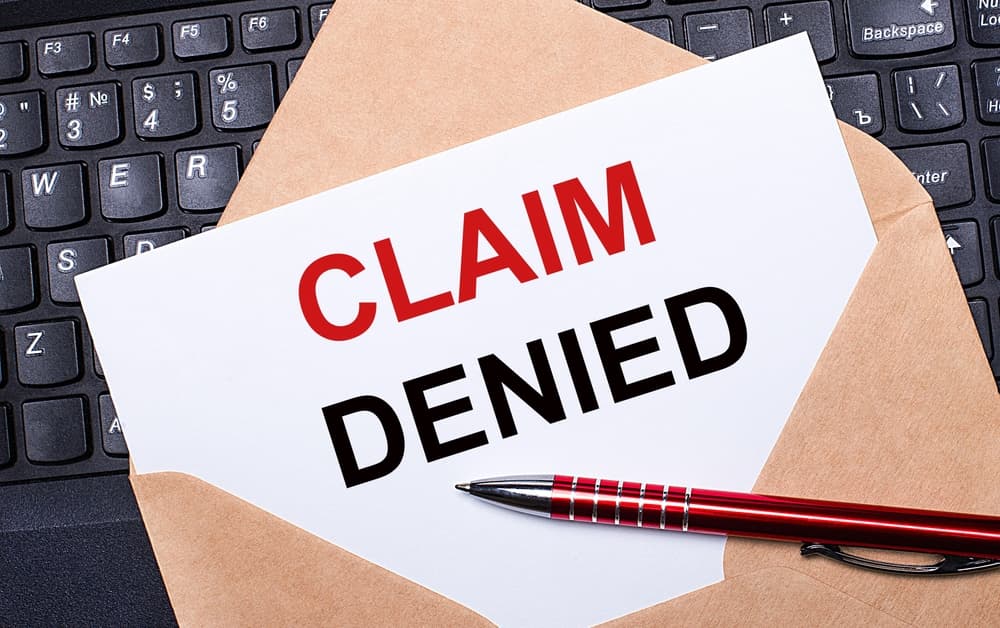Stephen Hasner | Workers' Compensation | March 28, 2025

Workplace injuries and occupational illnesses can be devastating, impacting not only a worker’s health but also their financial stability. Fortunately, workers’ compensation insurance exists to provide financial relief and medical benefits to employees who suffer work-related injuries or illnesses.
However, not every workers’ compensation claim is approved. When a claim is denied, workers have the right to appeal.
The appeals process in Atlanta can be stressful and draining. Therefore, you should not wait to involve a skilled workers’ compensation attorney to represent your best interests throughout your claim and appeal, helping ensure you reach the best possible outcome.
What is Workers’ Compensation?
Workers’ compensation, or “workers’ comp,” is a form of insurance designed to provide medical and wage benefits to employees who suffered an injury or become ill due to their jobs. It is a no-fault system, meaning employees do not need to prove that their employer was negligent to receive benefits.
In Georgia, employers with three or more employees are required to carry workers’ compensation insurance, ensuring that injured workers receive financial assistance without the need for litigation.
The entity in charge of workers’ compensation in Georgia is the State Board of Workers’ Compensation (SBWC). They are in charge of all workers’ comp claims and set the rules for everything from deadlines to compensation amounts.
What’s Covered and Not Covered by Workers’ Comp
Workers’ compensation generally covers injuries and illnesses that occur as a direct result of employment. These include, but are not limited to:
- Occupational illnesses (e.g., certain cancers or mesothelioma from hazardous work environments)
- Back and spinal injuries
- Traumatic brain injuries
- Repetitive stress injuries (e.g., carpal tunnel syndrome)
- Burns and electrocution injuries
- Broken bones
- Amputations
- Hearing and vision loss
While workers’ compensation covers numerous injuries and medical conditions, there are some exceptions. Generally, workers’ comp won’t cover:
- Injuries resulting from intoxication or drug use
- Self-inflicted injuries
- Injuries sustained while committing a crime
- Injuries occurring during non-work-related activities or horseplay
- Pre-existing conditions that are not aggravated by workplace conditions or accidents
If your injury is covered by workers’ compensation, you could be entitled to benefits and compensation to assist with medical needs and monetary losses. Filing a timely claim can help ensure you begin receiving your benefits as quickly as possible.
Benefits Offered By Workers’ Compensation Insurance
Benefits offered by workers’ comp insurance aim to assist employees during a challenging time, allowing them to receive proper medical treatment and provide for themselves and their families. Workers’ compensation benefits in Georgia include:
- Medical benefits: Cover necessary medical treatments, surgeries, medications, and rehabilitation costs.
- Temporary Total Disability benefits (TTD): Provides wage replacement (typically two-thirds of the worker’s average weekly wage) when an employee is unable to work due to an injury.
- Temporary Partial Disability benefits (TPD): Offers partial wage replacement when a worker can return to work in a limited capacity but earns less than before.
- Permanent Partial Disability benefits (PPD): Compensation for workers who suffer permanent impairment but can still work.
- Permanent Total Disability benefits (PTD): Provides compensation for workers who are permanently disabled and unable to work.
- Vocational Rehabilitation: Assistance in retraining or finding new employment if a worker cannot return to their previous job.
- Death benefits: Financial assistance to surviving dependents of workers who die due to work-related injuries or illnesses.
Dealing with an injury or illness is devastating enough as it is without having to worry about finances. Fortunately, workers’ compensation can step in to help employees and see them through some of life’s most difficult moments.
Filing a Workers’ Compensation Claim in Atlanta, Georgia

If you suffered an injury at work or received a diagnosis for a work-related medical condition, you could have the opportunity to file a workers’ compensation claim. However, doing so requires certain steps, which include:
- Reporting the injury: When you’re hurt or sick, you must notify your employer as soon as possible to get the workers’ compensation process started. In Georgia, employees generally have 30 days to report their condition. Waiting too long or failing to notify your employer altogether could jeopardize the claim, so it’s best to do so as soon as you’re able.
- Seeking medical treatment: If you needed emergency medical care after an accident, you could receive coverage for urgent medical needs. However, you must visit an employer-approved doctor chosen from the physician database. Be sure your employer provides their choice of doctors so you can schedule a visit and seek medical care right away.
- Completing the WC-14 Form: Fill out and file the “Notice of Claim” form with the Georgia State Board of Workers’ Compensation. The form is available on their website and must be filled out carefully to avoid potential issues.
- Awaiting Employer/Insurer Response: Once you file your claim, your employer and their insurance company will investigate the details of your situation. They’ll review the information you provided, your medical records, and any other available documentation to help them make a decision about your claim.
- Receiving an answer from the insurer: After their investigation, the insurance company will provide you with their answer. If approved, you will begin receiving benefits.
Filing a workers’ compensation claim in Georgia might seem like a straightforward process, but complications may arise. This is why it is essential to properly move through the process and get everything done on time. Additionally, a legal advocate can ensure your claim is filed within the allotted time, and the process runs smoothly.
What Happens if a Workers’ Comp Claim is Denied?
If your claim is denied, don’t worry. It may seem like it’s the end of the road for your claim, but it’s not. You can take additional steps and challenge the decision in pursuit of a better outcome for your claim.
Common Reasons for Workers’ Compensation Denials

It is not uncommon for workers’ compensation insurance companies to deny claims. In reality, insurers will find any reason to deny a claim, even for the smallest errors.
Understanding the stated cause for your denial can help you take the necessary steps to strengthen your case and seek a more favorable result. Some of the most common reasons workers’ comp insurance companies deny claims include the following:
Failure to Report the Injury on Time
If an employee fails to report their injury or illness to the employer within the specified time, the insurance company can use this to deny the claim altogether. The best way to avoid this potential roadblock is to speak with your employer as soon as possible.
Missed Deadlines for Filing the Claim
Beyond reporting the injury to an employer, claimants must also file a formal workers’ compensation claim within the state-mandated deadline. Late filings can result in automatic denials. In Georgia, employees have up to one year to file their claim with the SBWC.
Lack of Sufficient Medical Evidence
Workers’ compensation insurers often require strong medical documentation linking an injury to the workplace. If medical records do not clearly support the claim, it may be denied.
Seeking medical attention immediately can ensure that all records explicitly document the workplace-related nature of the injury. A second medical opinion may also strengthen the claim.
Disputed Injury Circumstances
Employers or insurers may argue that the injury did not occur at work or that the injury resulted from horseplay, intoxication, or personal misconduct.
Gather evidence such as witness statements, security footage, or workplace incident reports to support your claim. A legal professional can significantly help refute employer disputes.
Pre-Existing Conditions
If an insurer believes an injury is due to a pre-existing condition rather than a workplace incident, it may deny the claim.
It is worth noting, though, that pre-existing conditions do not automatically disqualify claims. However, the condition must be worsening due to your work. It is essential to provide medical documentation showing how the work-related incident or working conditions resulted in your harm.
Failure to Seek Immediate Medical Treatment
Delaying medical treatment can lead insurers to question the severity of an injury or whether it was truly work-related. Seek medical attention immediately after an injury and follow all prescribed treatments. Gaps in treatment can be used against a claim.
Injury Not Covered by Workers’ Compensation
Certain injuries, such as those sustained during breaks or non-working hours, might not be covered by workers’ compensation. Consult a legal professional to determine whether an injury is covered. If it is, they can help you prove it and fight against the insurer’s denial.
What To Do Immediately After Your Atlanta Workers’ Compensation Claim is Denied
Receiving a denial letter can be devastating, especially when you’re in need of compensation and expecting to start receiving benefits. Still, you should not panic. Instead, you should:
- Review the denial letter: When a workers’ comp insurer denies a claim, they must provide a reason. Thoroughly read the denial letter to determine what went wrong with your claim.
- Gather additional evidence: If possible, collect evidence related to your work injury or illness, including medical records, witness statements, or employer reports. Usually, appealing a denial requires as much evidence and documentation as possible.
- Consult with a workers’ compensation attorney: If your claim is denied and you don’t yet have an attorney, this is the time to hire legal counsel. Having an experienced workers’ comp lawyer on your side can substantially improve your chances of a successful appeal.
If your workers’ compensation claim is denied, these steps can help ensure your rights remain protected. Once you’ve hired legal representation, your attorney can proceed with an appeal.
The Workers’ Compensation Appeals Process in Atlanta
When you receive a denial of your workers’ compensation claim, there is a certain process to follow to appeal the insurer’s decision. The key steps involved in the process include:
Filing a WC-14 Notice
The first step in the appeals process is filing a WC-14 form with the SBWC, which acts as a Notice of Claim and a request for a hearing before an Administrative Law Judge (ALJ).
Request Mediation (Optional)
After filing the WC-14 form, parties may opt for mediation, where a neutral mediator helps resolve the dispute between the injured worker and the employer’s insurance provider. Mediation is not mandatory but can be a quicker and less adversarial way to reach a resolution.
Attend a Hearing Before an ALJ
If mediation fails or is bypassed, the case proceeds to a hearing before an ALJ. This hearing is similar to a trial and includes presenting evidence, witness testimony, and arguments from both sides. A judge will review the case and issue a ruling.
Appeal to the Appellate Division of the SBWC
If the ALJ denies the claim, you can file an appeal with the Appellate Division of the SBWC within 20 days of the judge’s decision. This process involves a review of the hearing’s record but does not include new evidence or testimony.
Appeal to Georgia’s Superior Court
If the SBWC’s Appellate Division upholds the denial, you have the right to appeal further to the Georgia Superior Court. This appeal must be filed within 20 days of the Appellate Division’s decision.
Appeal to the Georgia Court of Appeals and Supreme Court (If Necessary)
If the Superior Court denies the appeal, you may take your case to the Georgia Court of Appeals and, ultimately, the Georgia Supreme Court if needed. Appeals at this stage become increasingly complex and require strong legal representation. Fortunately, most cases are resolved before they ever reach this stage.
Advantages of Hiring a Workers’ Comp Lawyer

Having a lawyer to represent you during your workers’ compensation claim is beneficial at any stage, particularly if you need to appeal a decision. A skilled attorney can:
- Guide you through the process, including filing your claim and appealing if necessary
- Help document your injury properly and obtain pertinent evidence and documentation for your claim
- Ensure compliance with Georgia workers’ compensation laws
- Negotiate with insurance companies to secure fair settlements
- Represent you in disputes
Injured employees with legal representation typically reach better results than those who go unrepresented. Put yourself in a favorable position and hire an Atlanta workers’ compensation lawyer right away.
A Legal Advocate Can Represent You During Your Workers’ Compensation Appeals Process in Atlanta
Navigating the workers’ compensation system can be challenging, especially when dealing with a denied claim. The appeals process is complex, requiring strong legal arguments and substantial evidence. Having a knowledgeable Atlanta workers’ compensation attorney increases your chances of receiving the benefits you deserve.
If you’ve suffered an injury at work and need help with your claim or appeal, seek legal representation immediately. A lawyer can fiercely protect your rights and financial future.


